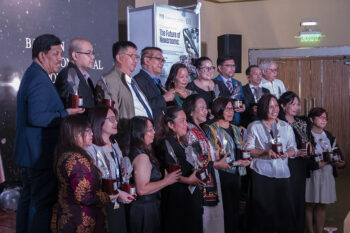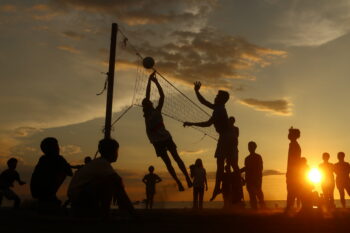 ZAMBOANGA CITY (MindaNews / 11 June) – Last month, Dr Alzad Sattar, a member of the Bangsamoro Transition Authority (BTA) filed resolution number 435, urging the BARMM government to institute a bridging program in order to prepare and qualify overseas and local Islamic kulliyah (college) graduate ulama for legal practice and appointment to judge positions in the Bangsamoro Shari’ah courts and offices.
ZAMBOANGA CITY (MindaNews / 11 June) – Last month, Dr Alzad Sattar, a member of the Bangsamoro Transition Authority (BTA) filed resolution number 435, urging the BARMM government to institute a bridging program in order to prepare and qualify overseas and local Islamic kulliyah (college) graduate ulama for legal practice and appointment to judge positions in the Bangsamoro Shari’ah courts and offices.
This call is premised on Section 1, Article X of Bangsamoro Organic Law (Republic Act 11054) that provides a justice system in accordance with the unique cultural and historical heritage of the Bangsamoro. Section 8 of the same Article specifies the qualifications of judges in the Shari’ah Circuit, District and High Courts, which include passing the Philippine Bar; and Section 13 specifies who can practice before the Shari’ah courts, which include Shari’ah Special Bar and the Philippine Bar.
However, this specific requirement for the Philippine bar, without affirmative intervention, would automatically disqualify most of the local ulama, even though they are already graduates of Islamic Shari’ah (Law) and Fiqh (Jurisprudence) from overseas and local Islamic kulliyyāt (colleges). Further, they will also be disqualified for appointment to other offices in the Bangsamoro Government which will be organized in the near future as required by law, such as the Shari’ah Public Assistance Office, Shari’ah Special Prosecution Service, a Shari’ah Academy, and Office of the Jurisconsult of Islamic Law (Section 16 of Article X).
The ulama (religious leaders) are an important and crucial sector in the Moro community. In the Islamic context, the ulama together with the umara (political leaders), are the two faces of Islamic leadership. Thus, a critical stakeholder and sector in the development of the Bangsamoro. Therefore, in order to assume their meaningful role and positive engagement in the regional Shari’ah justice system, there is a need to support or bridge them to meet legal qualifications of the Philippine Bar and qualify for appointment to the Shari’ah courts within Bangsamoro. This is the rationale of the resolution filed by MP Alzad Sattar.
If BARMM considers developing this program, aside from opening this to overseas and local kulliyah graduates of Islamic Shari’ah (Law) and Fiqh (Jurisprudence); priority should be given to those ulama who are in their 20s to 40s, up to 45 years old. The maximum age cap of 45 is consistent with the government retirement age and minimum service period to qualify for retirement.
We view this bridging program as an educational grant to earn a college degree and more. In this case, to earn a degree in law, i.e. Bachelor of Arts in Law (AB Law). another admission requirement is on English language and law proficiency which can be assessed through the Philippine Law School Admission Test (PhilSAT). BARMM and participating law schools can agree on this as a uniform requirement and the passing rate. Those who passed the PhilSAT shall automatically be admitted as grantees of the bridging program. Possible participating law schools in and around the region for this bridging program are Notre Dame University in Cotabato City, the University of Southern Mindanao in Kabacan, North Cotabato, Mindanao State University in Marawi and Ateneo de Zamboanga to cover the island provinces.
Grantees should enjoy free tuition and other school fees, monthly stipend, semestral book allowance for four years of law study, and graduation fees. In the first two years of law study, the program management can make arrangements with the National Commission on Muslim Filipinos (NCMF) to provide a free 45-day Shari’ah review to qualify for the Sharia’h special bar examination.
In their 3rd and 4th year of law study, grantees can be contracted by BARMM to immersive legal work in the BTA or its successor, and across BARMM agencies as part of work exposure, provided, nature and extent of such legal work will not sacrifice the quality of their law studies. BARMM can organize and mobilize grantees into provincial teams to assist in providing legal clinics to the communities or for similar non-partisan activities. After graduating from the College of Law, the project management will contract a free bar review and monthly allowance for the duration of their review.
Because of the huge investment, society should benefit from this effort. Therefore, grantees will sign an agreement with the BARMM to return service for 2-year within the BARMM for every year of the educational grant. Thus, a dedicated program management team is critical. This is the team that will directly supervise its delivery and partnership with law schools and together manage a successful law student formation. This is not a novel idea. There has been a program like this in the past. BARMM can build on the success, strengths, and lessons of the Accelerated Teacher Education Program (ATEP) which saw the formation of professional teachers among those teaching the Arabic Language and Islamic Values Education (ALIVE) Program in DepEd nationwide.
Without affirmative support like this suggested program, it will be difficult to see a critical mass of ulama transitioning and engaged in the BARMM Shari’ah System. Without the ulama, any gains in the Shari’ah system will be viewed with skepticism and generates minimal goodwill from the Moro people. Engaging and bridging the ulama is a strong counter-narrative against violent extremists who argues that the only way to institutionalizing Shari’ah is through their preferred violent means.
(MindaViews is the opinion section of MindaNews. Noor Saada is a Tausug of mixed ancestry – born in Jolo, Sulu, grew up in Tawi-tawi, studied in Zamboanga and worked in Davao, Makati and Cotabato. He is a development worker and peace advocate, former Assistant Regional Secretary of the Department of Education in the Autonomous Region in Muslim Mindanao, currently working as an independent consultant and is a member of an insider-mediation group that aims to promote intra-Moro dialogue.)







